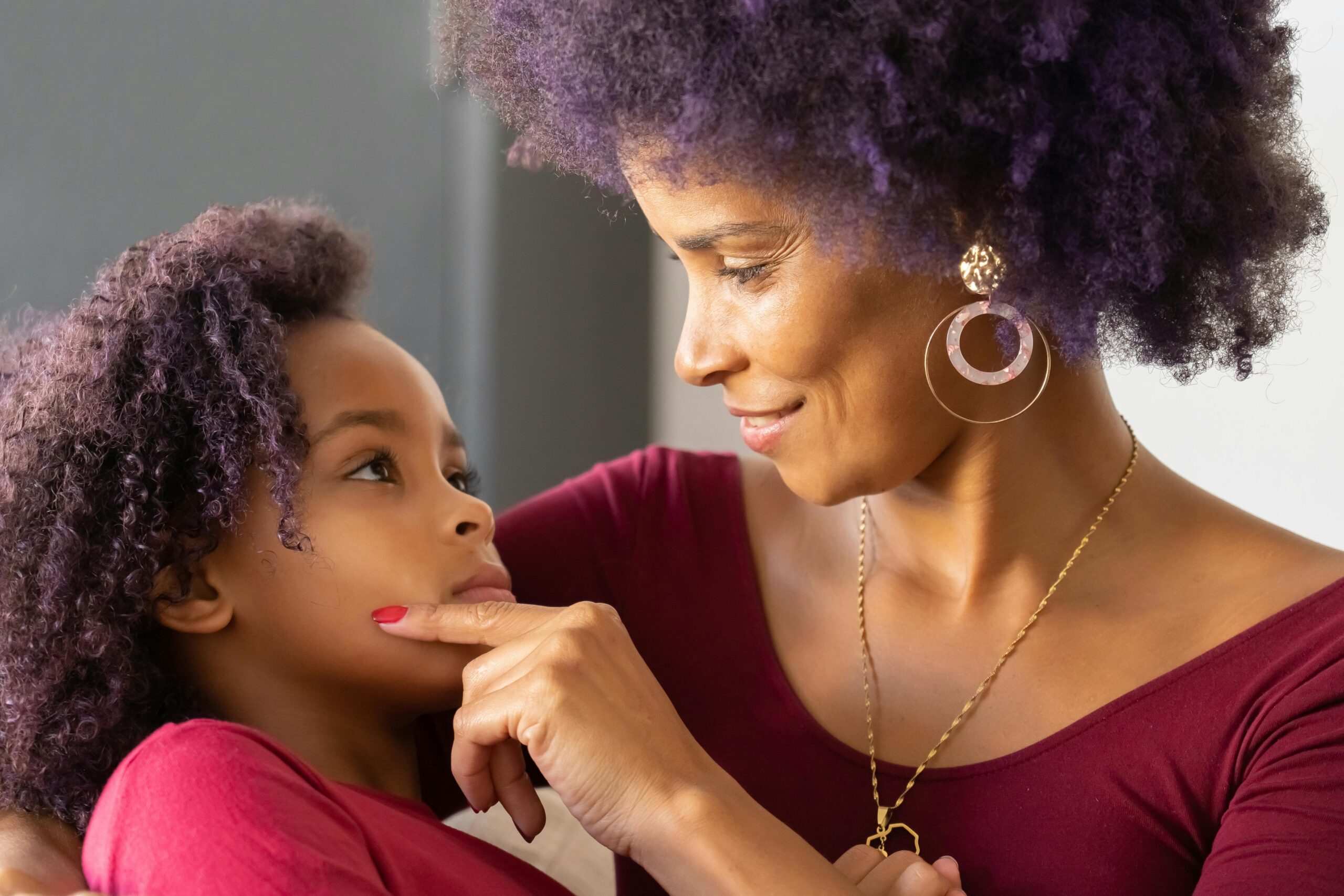Your cart is currently empty!
Over the next few blogs, it’s about to get real. I’m ready to share the unfiltered truth about single Black autism parenting. This Monday’s reality check? It’s just where our conversation starts. This week, I stared at my bank balance, which was low enough to make my ancestors weep. Rent–past due. Utilities, car note, and insurance, still due. School lunches for my babies: Question mark. I had just enough for a few back-to-school clothes and thank GOD for the free haircuts from my ‘hood, but nothing extra.
That was my reality. And when you’re raising children with autism–especially as a single parent–those moments hit different.
The truth? I’ve cried in front of my kids. I’ve fussed. I’ve celebrated their wins while silently wondering how I’m gonna make it to the next month. And I’m not alone—many of us are living this exact story. In fact, research backs this up. Studies show that over 50% of parents raising children with autism report high to severe levels of stress, often tied to financial strain, lack of respite care, and the nonstop demands of caregiving (Olson et al., 2021). Consequently, this leads to prolonged caregiver stress, which leads to poorer overall health and reduced quality of life. The real jump scare? This can impact our children’s emotional regulation, behavior, and long-term well-being.
Why We Gotta Talk About It
Over the last few years, more celebrities—Holly Robinson Peete, Toni Braxton, Fat Joe, Erica Dixon, Roddy Rich—have shared that their children are on the autism spectrum. Visibility matters. But representation can’t just be the highlight reel.
In my Developing P.O.V. (Parents of Virtue) capstone, I wrote, “Without effective supports for parents, these parents are adversely changed by decreased Quality of Life (QoL)… which may increase the risk of maltreatment to children with ASD.” What’s even harder to admit is this—when our QoL stays low, maltreatment, abuse, or neglect of our own children can happen without us even realizing it. It’s not about bad parenting; it’s about burned-out parenting, and the research is clear—prolonged high stress can push even the most loving caregiver to the edge.
That’s why we have to have real, raw conversations—especially in the Black American caregiver community to start–on what resilience means and the holding spaces we need.
Because you cannot come back from a crash out.
Defining Quality of Life: Our Way
The World Health Organization calls QoL “an individual’s perception of their position in life in the context of culture, value systems, goals, expectations, standards, and concerns.”
But QoL for a Black autism parent? What’s that, you ask? Welp, I’m glad you did ask. It’s about the FULL you, not the empty one. It’s your mental, physical, emotional, financial, spiritual, and social health. In my research, I start the journey of fullness with getting A.I.R.:
- Awareness & Affirmation (or self–Advocacy)
- Information & Inspiration
- Reliable Resources
And we all know what happens when we don’t have adequate A.I.R.. We suffocate.
Black scholar Dr. LaRon Nelson reminds us: “Health equity is not just about services—it’s about dismantling the structures that make people sick in the first place.” For us, that means pushing against both ableism and racism in the systems meant to ignore what we need, for real.
Resilience is More Than a Bounce-Back
Resilience is not just “bouncing back.” It’s the art of adapting, resisting, and growing despite the weight you carry. As Dr. Joy DeGruy teaches about intergenerational strength: “We are the sum total of those who came before us. Our survival is proof that we are more than what happened to us.”
Family resilience (something my capstone ranked high for QoL) is about creating adaptive strategies in the middle of the storm, so the storm doesn’t define you. Instead, it lifts you to higher ground.
The Holding Space We Deserve
When the cameras are off and the BTS reel gets real, we need spaces where we can cry, vent, get frustrated—without judgment. As one parent told me during my research, “Sometimes I just need to say I’m tired, without someone thinking I’m giving up on my kid.” I felt that. On my soul.
We need community that celebrates the wins and sits with us in the losses. This is especially true for Black parents, who face what researchers call intersectional stress—the combined weight of racism and ableism.
My Quality of Life Check
- Yesterday, after work, I walked outside in nature. Didn’t wanna do it, but I needed to.
- Today, I’m going to my swim class at the Y–children in tow and with childcare ready. Yes, it’s another “mommy-get-up-and-do,” but this one is for me, and it’s necessary.
- Tomorrow, I will be intentional in holding space for myself.
Because if I crash out, so can my children. I’m here to leave an impact and to influence our legacy, not leave them with scars they have to spend a lifetime healing from. So it’s top priority that I check in–with myself–so that I don’t check out.
Two Real Self-Care Prompts
The A.I.R. © Check-In (Ask yourself daily):
>Am I present or just moving on autopilot? Awareness.
>Did I celebrate the good things that happened for me today? Affirmation.
>Did I ask for the help I needed for today? What were the results? Information
>How did I show up for myself today that both myself and my children would be proud of? Inspiration
>Where did I receive genuine help from? Reliable Resources
Even asking yourself the top 3 guiding questions will help ground you before burnout creeps in.
The “15 for Me” Rule
Every day, take 15 minutes where you do nothing for anyone else. No chores. No appointments. No emails. Just you and GOD. whether that’s sipping tea, listening to music, or staring out the window.
Final Words
We can’t just keep surviving–we deserve to live good. We deserve A.I.R.©, holding spaces, and structures that work with us, not against us. And if you’re reading this as a fellow autism mom, dad, grandma, granddaddy, sibling, auntie, or uncle: You are not failing. You are carrying more than most will ever see.
AND YOU STILL DESERVE JOY.
~TY Marian
References
DeGruy, J. (2005). Post Traumatic Slave Syndrome. Joy DeGruy Publications.
Harris-Marion, T. Y. (2023). Developing P.O.V. (Parents of Virtue): Identifying & Implementing Effective Supports for Parents of Children with Autism. Fort Hays State University. [CAPSTONE].
Nelson, L. E. (2020). Addressing structural barriers to health equity. Journal of Urban Health, 97(3), 368–371.
Olson, L., Chen, B., Ibarra, C., Wang, T., Mash, L., Linke, A., Kinnear, M., & Fishman, I. (2021). Externalizing behaviors are associated with increased parenting stress in caregivers of young children with autism. Journal of Autism and Developmental Disorders, 52(3), 975–986. https://doi.org/10.1007/s10803-021-05027-w
Pecor, K., Barbayannis, G., Yang, M., Johnson, J., Materasso, S., Borda, M., Garcia, D., Garla, V., & Ming, X. (2021). Quality of life changes during the COVID-19 pandemic for caregivers of children with ADHD and/or ASD. International Journal of Environmental Research and Public Health, 18(7), 3667. https://doi.org/10.3390/ijerph18073667
Vasilopoulou, E., & Nisbet, J. (2016). The quality of life of parents of children with autism spectrum disorder: A systematic review. Research in Autism Spectrum Disorders, 23, 36–49. https://doi.org/10.1016/j.rasd.2015.11.008


Leave a Reply